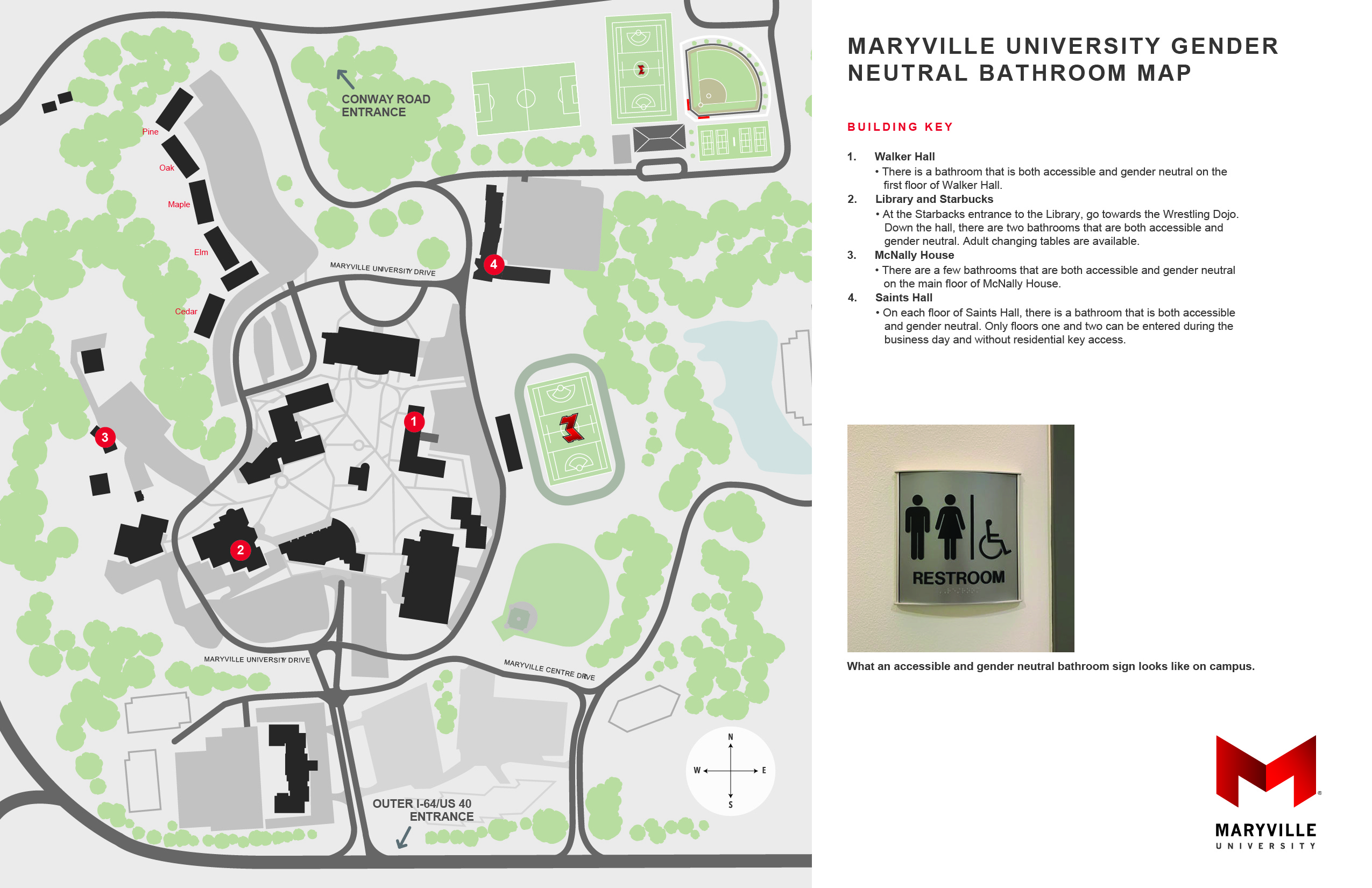Importance of Pronouns
At Maryville University, we recognize that faculty, staff, students, and all members affiliated with our campus want a welcoming and inclusive environment for one another. Regarding inclusivity to the Lesbian, Gay, Bisexual, Transgender, Queer or Questioning, Intersex, Asexual, + community the Office of Diversity and Inclusion has provided the resources below for education, advocacy, support and more! If you can’t find what you’re looking for on our website, please get in touch with our Office.
Gender-Neutral Pronouns
Pronouns are words that a person may use to identify themselves instead of their chosen name. For example, she/her/hers and he/him/his are typically feminine and masculine pronouns, respectively. However, some feel more comfortable with gender-neutral pronouns. The most common gender-neutral pronouns are they/them/theirs, used in the singular to refer to an individual in a way that isn’t gendered.
Resource: Merriam-Webster Dictionary – Singular ‘They’
How to Introduce Yourself w/ Pronouns
Introducing yourself and your pronouns is easy!
Let’s say it’s the first day of class; you can say: “Hi my name is Austin, and I use he/him” pronouns or “My name is Elle, and I use they/them pronouns.”
Even if it seems a little awkward to do so, it could prevent the act of being misgendered. If you have supportive friends around you, you could also get them to encourage others to use your pronouns when speaking to you. It’s a great way for them to be an ally. In the same way, you can do the same for your friends. It could go something like, “Oh yeah, Sara is non-binary, they use they/them not she/her!”
Being Supportive
What pronouns should I use?
Though our intentions may be good, we do not always need to know the pronouns of the people around us. You should always ask if you aren’t sure, even with people who you interact with on a regular basis.
What’s the best way to ask about pronouns?
Just ask what pronouns do you use or give the pronoun that you use and then ask what about you?
What if I use the wrong pronoun?
Apologize quickly if you accidentally use the wrong pronoun and move on. You can also apologize in private if you realize later on that you used the incorrect pronoun.
Try it out yourself!
• In class or staff meetings, ask everyone to share pronouns when they introduce themselves.
• List your pronouns below your name in your email signature.
• Ask attendees at events to put their pronouns on their nametags below their names.
• Put your pronouns on your nameplate on your office or residence door.
| Subject | Object | Possessive | Reflexive |
| I | Me | My | Mine | Myself |
| You | You | Your|Yours | Yourself |
| He | Him | His|His | Himself |
| She | Her | Her|Hers | Herself |
| They | Them | Their|Theirs | Themselves |
Maryville University Gender and Sexuality Alliance


